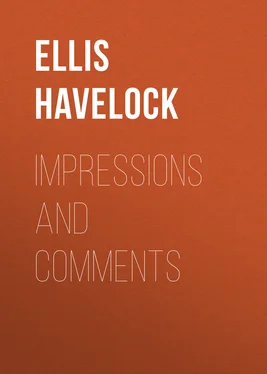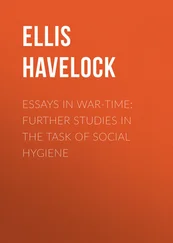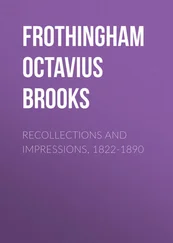Havelock Ellis - Impressions and Comments
Здесь есть возможность читать онлайн «Havelock Ellis - Impressions and Comments» — ознакомительный отрывок электронной книги совершенно бесплатно, а после прочтения отрывка купить полную версию. В некоторых случаях можно слушать аудио, скачать через торрент в формате fb2 и присутствует краткое содержание. Жанр: foreign_prose, foreign_antique, на английском языке. Описание произведения, (предисловие) а так же отзывы посетителей доступны на портале библиотеки ЛибКат.
- Название:Impressions and Comments
- Автор:
- Жанр:
- Год:неизвестен
- ISBN:нет данных
- Рейтинг книги:4 / 5. Голосов: 1
-
Избранное:Добавить в избранное
- Отзывы:
-
Ваша оценка:
- 80
- 1
- 2
- 3
- 4
- 5
Impressions and Comments: краткое содержание, описание и аннотация
Предлагаем к чтению аннотацию, описание, краткое содержание или предисловие (зависит от того, что написал сам автор книги «Impressions and Comments»). Если вы не нашли необходимую информацию о книге — напишите в комментариях, мы постараемся отыскать её.
Impressions and Comments — читать онлайн ознакомительный отрывок
Ниже представлен текст книги, разбитый по страницам. Система сохранения места последней прочитанной страницы, позволяет с удобством читать онлайн бесплатно книгу «Impressions and Comments», без необходимости каждый раз заново искать на чём Вы остановились. Поставьте закладку, и сможете в любой момент перейти на страницу, на которой закончили чтение.
Интервал:
Закладка:
How pleasant at Newhaven to find myself near another woman, a young Frenchwoman, with the firm, disciplined, tender face, the sweetly-modulated voice, the air of fine training, the dignified self-respect which also involves respect for others. I realised in a flash the profound contrast to that fellow-countrywoman of mine who had fascinated my attention on board the boat.
But one imagines a French philosopher, a new Taine, let us suppose, setting out from Dieppe for the "land of Suffragettes" to write another Notes sur l'Angleterre . How finely he would build a great generalisation on narrow premises! How acutely he would point out the dependence of the English "gentleman's" good qualities or the ill-conditioned qualities of his women-folk!
August 15. —I enter an empty suburban railway carriage and take up a common-looking little periodical lying on the seat beside me. It is a penny weekly I had never heard of before, written for feminine readers and evidently enjoying an immense circulation. I turn over the pages. One might possibly suppose that at the present moment the feminine world is greatly excited, or at all events mildly interested, by the suffrage movement. But there is not a word in this paper from beginning to end with the faintest reference to the suffrage, nor is there anything bearing on any single great social movement of the day in which, it may seem to us, women are taking a part. Nor, again, is there anything to be found touching on ideas, not even on religion. There are, on the other hand, evidently three great interests dominating the thoughts of the readers of this paper: Clothes, Cookery, Courtship. How to make an old hat look new, how to make sweetmeats, how to behave when a man makes advances to you—these are the problems in which the readers of this journal are profoundly interested, and one can scarcely gather that they are interested in anything else. Very instructive is the long series of questions, problems posed by anxious correspondents for the editor to answer. One finds such a problem as this: Suppose you like a man, and suppose you think he likes you, and suppose he never says so—what ought you to do? The answers, fully accepting the serious nature of the problems, are kindly and sensible enough, almost maternal, admirably adapted to the calibre and outlook of the readers in this little world. But what a little world! So narrow, so palaeolithically ancient, so pathetically simple, so good, so sweet, so humble, so essentially and profoundly feminine! It is difficult not to drop a tear on the thin, common, badly-printed pages.
And then, in the very different journal I have with me, I read the enthusiastic declaration of an ardent masculine feminist—a man of the study—that the executive power of the world is to-day being transferred to women; they alone possess "psychic vision," they alone are interested in the great questions which men ignore—and I realise what those great questions are: Clothes, Cookery, Courtship.
August 23. —I stood on the platform at Paddington station as the Plymouth Express slowly glided out. Leaning out of a third-class compartment stood the figure that attracted my attention. His head was bare and so revealed his harmoniously wavy and carefully-tended grey hair. The expression of his shaven and disciplined face was sympathetic and kindly, evidently attuned to expected emotions of sorrowful farewell, yet composed, clearly not himself overwhelmed by those emotions. His right arm and open hand were held above his head, in an attitude that had in it a not too ostentatious hint of benediction. When he judged that the gracious vision was no longer visible to the sorrowing friends left behind he discreetly withdrew into the carriage. There was a feminine touch about this figure; there was also a touch of the professional actor. But on the whole it was absolutely, without the shadow of a doubt, the complete Anglican Clergyman.
September 2.—Nearly every day just now I have to enter a certain shop where I am served by a young woman. She is married, a mother, at the same time a businesslike young woman who is proud of her businesslike qualities. But she is also pleasant to look upon in her healthy young maternity, her frank open face, her direct speech, her simple natural manner and instinctive friendliness. From her whole body radiates the healthy happiness of her gracious personality. A businesslike person, certainly, and I receive nothing beyond my due money's worth. But I always carry away something that no money can buy, and that is even more nourishing than the eggs and butter and cream she sells.
How few, it seems to me, yet realise the vast importance in civilisation of the quality of the people one is necessarily brought into contact with! Consider the vast number of people in our present communities who are harsh, ugly, ineradically discourteous, selfish, or insolent—the people whose lives are spent in diminishing the joy of the community in which not so much Providence as the absence of providence has placed them, in impeding that community's natural activity, in diminishing its total output of vital force. Lazy and impertinent clerks, stuck-up shop assistants, inconsiderate employers, brutal employees, unendurable servants, and no less unendurable mistresses—what place will be left for them as civilisation advances?
We have assumed, in the past, that these things and the likes of these are modifiable by nurture, and that where they cannot be cured they must be endured. But with the realisation that breeding can be, and eventually must be, controlled by social opinion, a new horizon has opened to civilisation, a new light has come into the world, the glimpse of a new Heaven is revealed.
Animals living in nature are everywhere beautiful; it is only among men that ugliness flourishes. Savages, nearly everywhere, are gracious and harmonious; it is only among the civilised that harshness and discord are permitted to prevail. Henry Ellis, in the narrative of his experiences in Hudson's Bay in the eighteenth century, tells how a party of Eskimo—a people peculiarly tender to their children—came to the English settlement, told heart-brokenly of hardship and famine so severe that one of the children had been eaten. The English only laughed and the indignant Eskimo went on their way. What savages anywhere in the world would have laughed? I recall seeing, years ago, a man enter a railway carriage, fling aside the rug a traveller had deposited to retain a corner seat and obstinately hold that seat. Would such a man be permitted to live among savages? If the eugenic ideals that are now floating before men's eyes never lead us to any Heaven at all, but merely discourage among us the generation of human creatures below the level of decent savagery, they will serve their turn.
September 7.—The music of César Franck always brings before me a man who is seeking peace with himself and consolation with God, at a height, above the crowd, in isolation, as it were in the uppermost turret of a church tower. It recalls the memory of the unforgettable evening when Denyn played on the carillon at Malines, and from the canal side I looked up at the little red casement high in the huge Cathedral tower where the great player seemed to be breathing out his soul, in solitude, among the stars. Always when I hear the music of Franck—a Fleming, also, it may well be by no accident—I seem to be in contact with a sensitive and solitary spirit, absorbed in self-communion, weaving the web of its own Heaven and achieving the fulfilment of its own rapture.
In this symphonic poem, "Les Djinns," the attitude more tenderly revealed in the "Variations Symphoniques," and, above all, the sonata in A Major, is dramatically represented. The solitary dreamer in his tower is surrounded and assailed by evil spirits, we hear the beating of their great wings as they troop past, but the dreamer is strong and undismayed, and in the end he is left in peace, alone.
Читать дальшеИнтервал:
Закладка:
Похожие книги на «Impressions and Comments»
Представляем Вашему вниманию похожие книги на «Impressions and Comments» списком для выбора. Мы отобрали схожую по названию и смыслу литературу в надежде предоставить читателям больше вариантов отыскать новые, интересные, ещё непрочитанные произведения.
Обсуждение, отзывы о книге «Impressions and Comments» и просто собственные мнения читателей. Оставьте ваши комментарии, напишите, что Вы думаете о произведении, его смысле или главных героях. Укажите что конкретно понравилось, а что нет, и почему Вы так считаете.












